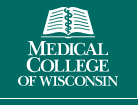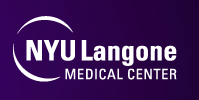Chemotherapy and Radiation Therapy With or Without Panitumumab in Treating Patients With Stage IIIA Non-Small Cell Lung Cancer
| Status: | Active, not recruiting |
|---|---|
| Conditions: | Lung Cancer, Cancer |
| Therapuetic Areas: | Oncology |
| Healthy: | No |
| Age Range: | 18 - Any |
| Updated: | 4/26/2018 |
| Start Date: | February 2011 |
Randomized Phase II Study of Pre-operative Chemoradiotherapy +/- Panitumumab (IND #110152) Followed by Consolidation Chemotherapy in Potentially Operable Locally Advanced (Stage IIIA, N2+) Non-Small Cell Lung Cancer
RATIONALE: Drugs used in chemotherapy (CT), such as paclitaxel and carboplatin, work in
different ways to stop the growth of tumor cells, either by killing the cells or by stopping
them from dividing. Radiation therapy (RT) uses high-energy x-rays to kill tumor cells.
Monoclonal antibodies, such as panitumumab, can block tumor growth in different ways. Some
block the ability of tumor cells to grow and spread. Others find tumor cells and help kill
them or carry tumor-killing substances to them. Giving these treatments before surgery may
make the tumor smaller and reduce the amount of normal tissue that needs to be removed. It is
not yet known whether chemotherapy and radiation therapy are more effective when given with
or without panitumumab in treating patients with non-small cell lung cancer.
PURPOSE: This randomized phase II trial is studying chemotherapy and radiation therapy to see
how well they work when given with or without panitumumab in treating patients with stage
IIIA non-small cell lung cancer.
different ways to stop the growth of tumor cells, either by killing the cells or by stopping
them from dividing. Radiation therapy (RT) uses high-energy x-rays to kill tumor cells.
Monoclonal antibodies, such as panitumumab, can block tumor growth in different ways. Some
block the ability of tumor cells to grow and spread. Others find tumor cells and help kill
them or carry tumor-killing substances to them. Giving these treatments before surgery may
make the tumor smaller and reduce the amount of normal tissue that needs to be removed. It is
not yet known whether chemotherapy and radiation therapy are more effective when given with
or without panitumumab in treating patients with non-small cell lung cancer.
PURPOSE: This randomized phase II trial is studying chemotherapy and radiation therapy to see
how well they work when given with or without panitumumab in treating patients with stage
IIIA non-small cell lung cancer.
OBJECTIVES:
Primary
- Determine the mediastinal nodal clearance after completion of induction
chemoradiotherapy with or without panitumumab in patients with stage IIIA non-small cell
lung cancer.
Secondary
- Assess overall survival of these patients.
- Evaluate patterns of first failure in these patients.
- Determine the acute and late adverse events associated with these regimens.
- Assess surgical morbidities in patients with resectable disease at reassessment.
- Determine the correlation between pre- and post-treatment biomarkers (including
epidermal growth factor receptor (EGFR) and ras mutation status) and outcomes
(mediastinal nodal clearance and overall survival).
- Evaluate the prognostic value of plasma osteopontin and microRNA for overall survival.
- Assess the ability of FDG-PET/CT scan re-staging to predict outcome.
OUTLINE: This is a multicenter study. Patients are randomized to 1 of 2 treatment arms.
- Arm I: Patients receive induction therapy comprising paclitaxel IV over 1 hour and
carboplatin IV over 30 minutes on days 1, 8, 15, 22, 29, and 36. Patients also undergo
intensity-modulated radiotherapy (IMRT) or 3-dimensional conformal radiotherapy (3D-CRT)
once daily on days 1-5, 8-12, 15-19, 22-26, 29-33, and 36-40. Beginning approximately
6-12 weeks later, patients receive consolidation therapy comprising paclitaxel IV over 1
hour and carboplatin IV over 30 minutes on days 1 and 21.
- Arm II: Patients receive induction therapy comprising panitumumab IV over 1 hour on days
1, 8, 15, 22, 29, and 36 and paclitaxel IV over 1 hour and carboplatin IV over 30
minutes on days 8, 15, 22, 29, and 36. Patients also undergo IMRT or 3D-CRT once daily
on days 8-12, 15-19, 22-26, 29-33, 36-40, and 43-47. Beginning approximately 6-12 weeks
later, patients receive consolidation therapy comprising paclitaxel IV over 1 hour and
carboplatin IV over 30 minutes on days 1 and 21.
- In both arms, patients with resectable disease and no disease progression may proceed to
surgery (thoracotomy, lobectomy, or pneumonectomy) approximately 4-6 weeks after
completion of induction therapy. After surgery, patients proceed to consolidation
therapy.
After completion of study treatment, patients are followed up at 6 weeks, every 3 months for
1 year, every 6 months for 2 years, and then annually thereafter.
Primary
- Determine the mediastinal nodal clearance after completion of induction
chemoradiotherapy with or without panitumumab in patients with stage IIIA non-small cell
lung cancer.
Secondary
- Assess overall survival of these patients.
- Evaluate patterns of first failure in these patients.
- Determine the acute and late adverse events associated with these regimens.
- Assess surgical morbidities in patients with resectable disease at reassessment.
- Determine the correlation between pre- and post-treatment biomarkers (including
epidermal growth factor receptor (EGFR) and ras mutation status) and outcomes
(mediastinal nodal clearance and overall survival).
- Evaluate the prognostic value of plasma osteopontin and microRNA for overall survival.
- Assess the ability of FDG-PET/CT scan re-staging to predict outcome.
OUTLINE: This is a multicenter study. Patients are randomized to 1 of 2 treatment arms.
- Arm I: Patients receive induction therapy comprising paclitaxel IV over 1 hour and
carboplatin IV over 30 minutes on days 1, 8, 15, 22, 29, and 36. Patients also undergo
intensity-modulated radiotherapy (IMRT) or 3-dimensional conformal radiotherapy (3D-CRT)
once daily on days 1-5, 8-12, 15-19, 22-26, 29-33, and 36-40. Beginning approximately
6-12 weeks later, patients receive consolidation therapy comprising paclitaxel IV over 1
hour and carboplatin IV over 30 minutes on days 1 and 21.
- Arm II: Patients receive induction therapy comprising panitumumab IV over 1 hour on days
1, 8, 15, 22, 29, and 36 and paclitaxel IV over 1 hour and carboplatin IV over 30
minutes on days 8, 15, 22, 29, and 36. Patients also undergo IMRT or 3D-CRT once daily
on days 8-12, 15-19, 22-26, 29-33, 36-40, and 43-47. Beginning approximately 6-12 weeks
later, patients receive consolidation therapy comprising paclitaxel IV over 1 hour and
carboplatin IV over 30 minutes on days 1 and 21.
- In both arms, patients with resectable disease and no disease progression may proceed to
surgery (thoracotomy, lobectomy, or pneumonectomy) approximately 4-6 weeks after
completion of induction therapy. After surgery, patients proceed to consolidation
therapy.
After completion of study treatment, patients are followed up at 6 weeks, every 3 months for
1 year, every 6 months for 2 years, and then annually thereafter.
DISEASE CHARACTERISTICS:
- Histologically confirmed* non-small cell lung cancer (NSCLC), including any of the
following histologies:
- Adenocarcinoma
- Adenosquamous
- Large cell carcinoma
- Squamous cell carcinoma
- Non-lobar and non-diffuse bronchoalveolar cell carcinoma
- NSCLC not otherwise specified NOTE: *Documentation of NSCLC may originate from
the mediastinal node biopsy or aspiration
- Stage IIIA (T1-T3) disease with a single primary lung parenchymal lesion AND positive
ipsilateral mediastinal node or nodes (N2) with or without positive ipsilateral hilar
nodes (N1)
- N2 nodes must be separate from primary tumor by either CT scan or surgical
exploration
- Maximum nodal diameter of involved N2 nodes cannot exceed 3.0 cm
- N2 status must be pathologically confirmed to be positive by one of the following
methods*:
- Mediastinoscopy
- Mediastinotomy (Chamberlain procedure)
- Transesophageal needle biopsy using endoscopic ultrasound (EUS-TBNA)
- Endobronchial ultrasound biopsy using endoscopic ultrasound guidance
(EBUS-TBNA)
- Thoracotomy
- Video-assisted thoracoscopy
- Transbronchial needle biopsy by Wang technique (TBNA)
- Fine-needle aspiration under CT guidance NOTE: *PET positivity in the
ipsilateral mediastinal lymph nodes is not sufficient to establish N2 nodal
status
- Ipsilateral mediastinal nodes associated with right-sided tumor must be biopsied
unless all of the following are true:
- Tumor is left sided
- Paralyzed left true vocal cord documented by bronchoscopy or indirect
laryngoscopy
- Nodes visible in the anterior/posterior (level 5) region on CT scan
- Distinct primary tumor separate from nodes visible on CT scan
- Histologic (biopsy) or cytologic (needle aspiration or sputum) proof of
non-small cell histology from the primary tumor
- If lymph nodes in the contralateral mediastinum and neck are visible on contrast
CT scan of the chest and are > 1.0 cm in short axis or if contralateral
involvement is suggested by PET scan, then the nodes must be confirmed to be
negative
- Measurable disease as determined by contrast-enhanced CT scan
- Primary lung tumor distinct from mediastinal lymph nodes
- If a pleural effusion is present, the following criteria must be met to exclude
malignant involvement (incurable M1a disease):
- When pleural fluid is visible on both the CT scan and on a chest x-ray, a
pleuracentesis is required to confirm that the pleural fluid is cytologically
negative.
- Exudative pleural effusions are excluded, regardless of cytology;
- Effusions that are minimal (i.e. not visible under ultrasound guidance) that are
too small to safely tap are eligible.
- No palpable lymph nodes in the supraclavicular areas or higher in the neck, unless
proven to be benign by fine-needle aspiration or biopsy
- No distant metastases
PATIENT CHARACTERISTICS:
- Zubrod performance status 0-1
- Absolute neutrophil count (ANC) ≥ 1,500/mm³
- Platelet count ≥ 100,000/mm³
- Hemoglobin ≥ 10.0 g/dL (transfusion allowed)
- Creatinine clearance ≥ 60 mL/min
- Total bilirubin ≤ 1.5 times upper limit of normal (ULN)
- Alanine aminotransferase (ALT) and aspartate aminotransferase (AST) ≤ 2.5 times ULN
- Alkaline phosphatase ≤ 2.5 times ULN
- Serum albumin > 3.0 g/dL
- Serum magnesium normal (supplementation allowed)
- Not pregnant
- Negative pregnancy test
- Fertile patients must use effective contraception during and for 6 months after
completion of treatment
- Forced expiratory volume at one second (FEV1) ≥ 2.0 L OR predicted post-resection FEV1
≥ 0.8 L
- Diffusion capacity ≥ 50% predicted
- No other invasive malignancy within the past 3 years, except nonmelanoma skin cancer
or carcinoma in situ of the breast, oral cavity, or cervix
- No severe, active co-morbidity, including any of the following:
- Current uncontrolled cardiac disease (e.g., uncontrolled hypertension, unstable
angina, myocardial infarction within the past 6 months, uncontrolled congestive
heart failure, or cardiomyopathy with decreased ejection fraction (<50%)
- Acute bacterial or fungal infection requiring IV antibiotics
- Chronic obstructive pulmonary disease exacerbation or other respiratory illness
requiring hospitalization or that would preclude study therapy within the past 4
weeks
- Hepatic insufficiency resulting in clinical jaundice and/or coagulation defects
- AIDS or known HIV positivity
- No unintentional weight loss ≥ 5% of body weight within the past 6 months
- No prior severe infusion reaction to a monoclonal antibody
- No pre-existing peripheral neuropathy ≥ grade 2
PRIOR CONCURRENT THERAPY:
- No prior systemic chemotherapy or biological therapy (including erlotinib
hydrochloride or similar agents) for the study cancer
- Prior chemotherapy for a different cancer allowed
- No prior radiotherapy to the region of the study cancer that would result in overlap
of radiotherapy fields
- No prior therapy that specifically and directly targets the EGFR pathway
We found this trial at
31
sites
161 North Forge Street
Akron, Ohio 44304
Akron, Ohio 44304
(330) 375-7280

Summa Center for Cancer Care at Akron City Hospital Summa Health System is a leader...
Click here to add this to my saved trials
Cleveland Clinic Taussig Cancer Center At Taussig Cancer Institute, more than 250 highly skilled doctors,...
Click here to add this to my saved trials
800 Rose St
Lexington, Kentucky 40536
Lexington, Kentucky 40536
(859) 257-4488

Lucille P. Markey Cancer Center at University of Kentucky The Markey Cancer Center was founded...
Click here to add this to my saved trials
601 Elmwood Avenue
Rochester, New York 14642
Rochester, New York 14642
(585) 275-5830

James P. Wilmot Cancer Center at University of Rochester Medical Center The Wilmot Cancer Center...
Click here to add this to my saved trials
St. Agnes Hospital Cancer Center Saint Agnes Hospital is leading Maryland in the battle against...
Click here to add this to my saved trials
Click here to add this to my saved trials
72 East Concord St.
Boston, Massachusetts 02118
Boston, Massachusetts 02118
617-638-4173

Boston University Cancer Research Center
Click here to add this to my saved trials
Bryn Mawr Hospital Bryn Mawr Hospital, a nationally recognized community teaching hospital, is conveniently located...
Click here to add this to my saved trials
Click here to add this to my saved trials
Click here to add this to my saved trials
2222 N. Nevada Avenue
Colorado Springs, Colorado 80907
Colorado Springs, Colorado 80907
(719) 776-5000

Penrose Cancer Center at Penrose Hospital Through a full range of clinical trials, genetic counseling,...
Click here to add this to my saved trials
Fairview Southdale Hospital Fairview Health Services is an award-winning nonprofit health care system based in...
Click here to add this to my saved trials
Adams Cancer Center Every day across central Pennsylvania, the people of WellSpan Health work together...
Click here to add this to my saved trials
Click here to add this to my saved trials
Click here to add this to my saved trials
8800 W. Doyne Avenue
Milwaukee, Wisconsin 53226
Milwaukee, Wisconsin 53226
(414) 805-6840

Medical College of Wisconsin Cancer Center Cancer touches everyone in our community, and for many,...
Click here to add this to my saved trials
800 E 28th St
Minneapolis, Minnesota 55407
Minneapolis, Minnesota 55407
612-863-4000

Virginia Piper Cancer Institute at Abbott - Northwestern Hospital As the largest hospital in the...
Click here to add this to my saved trials
Click here to add this to my saved trials
160 E 34th St
New York, New York 10016
New York, New York 10016
(212) 731-5001

NYU Cancer Institute at New York University Medical Center The Perlmutter Cancer Center takes a...
Click here to add this to my saved trials
Methodist Estabrook Cancer Center At Methodist Estabrook Cancer Center, we understand how deeply a diagnosis...
Click here to add this to my saved trials
Click here to add this to my saved trials
Click here to add this to my saved trials
Click here to add this to my saved trials
111 S 11th St,
Philadelphia, Pennsylvania 19107
Philadelphia, Pennsylvania 19107
(877) 503-8350

Kimmel Cancer Center at Thomas Jefferson University - Philadelphia The Kimmel Cancer Center at Jefferson...
Click here to add this to my saved trials
Spruce St
Reading, Pennsylvania 19611
Reading, Pennsylvania 19611
(484) 628-4357

McGlinn Family Regional Cancer Center at Reading Hospital and Medical Center Cancer is an unknown...
Click here to add this to my saved trials
Click here to add this to my saved trials
Click here to add this to my saved trials
Click here to add this to my saved trials
Click here to add this to my saved trials
100 E Lancaster Ave
Wynnewood, Pennsylvania 19096
Wynnewood, Pennsylvania 19096
(484) 476-2000

Lankenau Cancer Center at Lankenau Hospital At Lankenau we pride ourselves on the breadth of...
Click here to add this to my saved trials
Click here to add this to my saved trials





